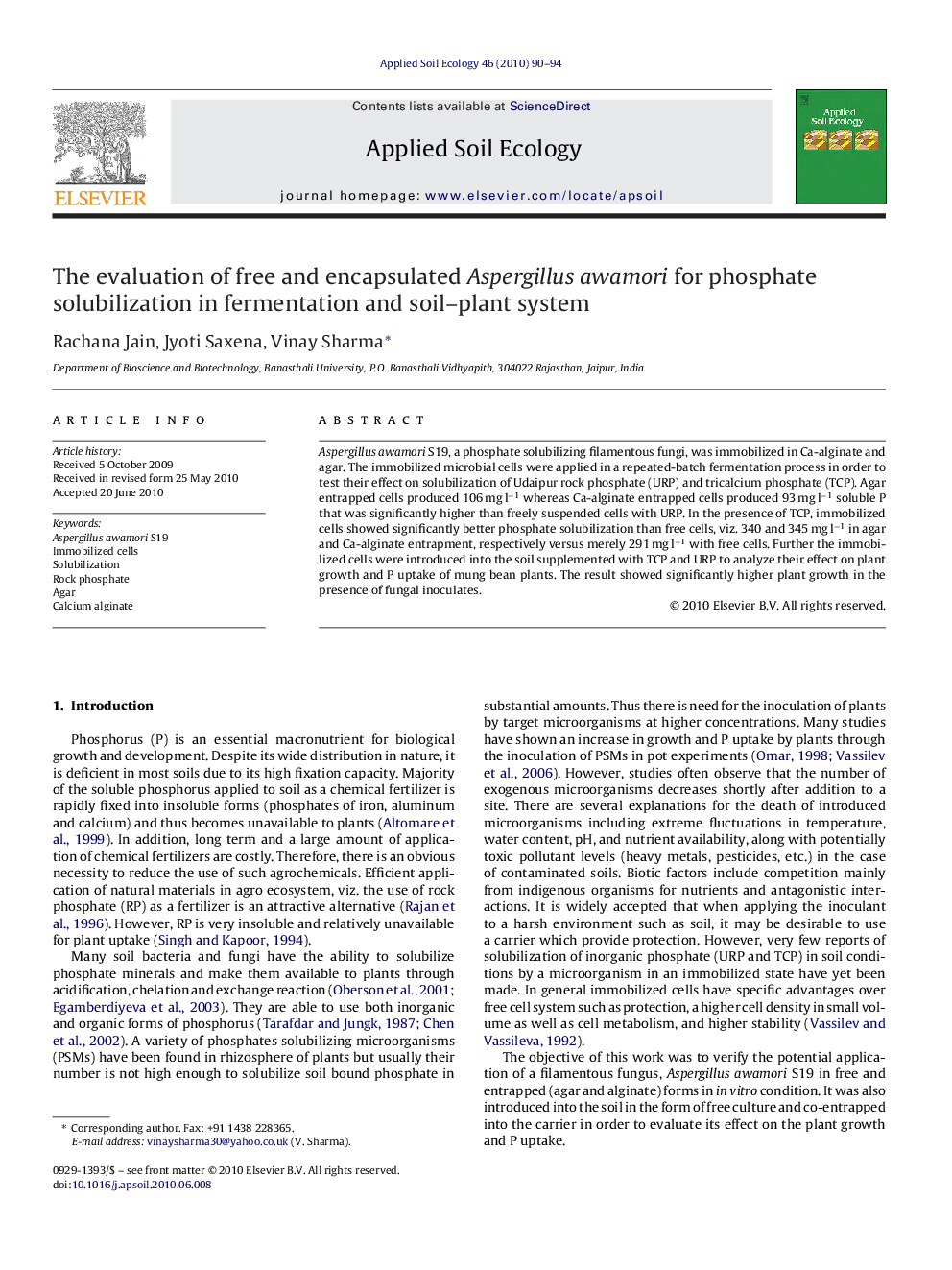| Article ID | Journal | Published Year | Pages | File Type |
|---|---|---|---|---|
| 4382772 | Applied Soil Ecology | 2010 | 5 Pages |
Abstract
Aspergillus awamori S19, a phosphate solubilizing filamentous fungi, was immobilized in Ca-alginate and agar. The immobilized microbial cells were applied in a repeated-batch fermentation process in order to test their effect on solubilization of Udaipur rock phosphate (URP) and tricalcium phosphate (TCP). Agar entrapped cells produced 106 mg lâ1 whereas Ca-alginate entrapped cells produced 93 mg lâ1 soluble P that was significantly higher than freely suspended cells with URP. In the presence of TCP, immobilized cells showed significantly better phosphate solubilization than free cells, viz. 340 and 345 mg lâ1 in agar and Ca-alginate entrapment, respectively versus merely 291 mg lâ1 with free cells. Further the immobilized cells were introduced into the soil supplemented with TCP and URP to analyze their effect on plant growth and P uptake of mung bean plants. The result showed significantly higher plant growth in the presence of fungal inoculates.
Related Topics
Life Sciences
Agricultural and Biological Sciences
Ecology, Evolution, Behavior and Systematics
Authors
Rachana Jain, Jyoti Saxena, Vinay Sharma,
